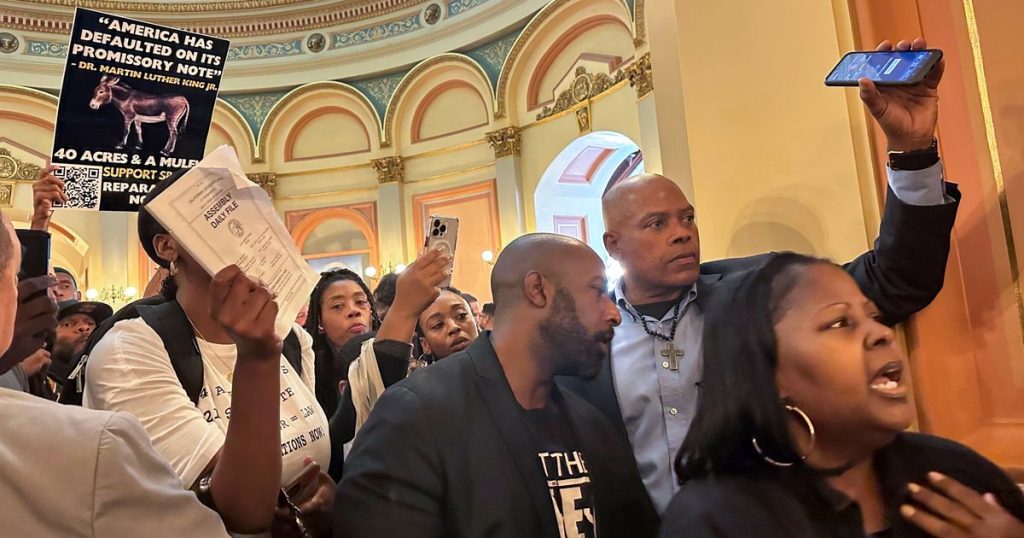California lawmakers recently passed some of the most ambitious legislation in the country aimed at addressing the legacy of racist policies that have led to disparities for Black people. The bills focus on issues such as housing, education, and health, but do not include direct payments to African Americans. Instead, the legislation includes proposals to return land or provide compensation to families whose property was unjustly seized by the government, as well as issuing a formal apology for past discriminatory laws and practices.
While the bills passed by California lawmakers represent significant steps towards addressing racial inequality, two key proposals were left out of the legislation. These bills would have created a fund and an agency to carry out reparations measures, which are considered essential components of the efforts to address historical injustices. The Black Caucus decided to pull these bills, acknowledging that more work is needed before moving forward with them. Lawmakers expressed concern that Governor Gavin Newsom may veto the bills if they are not carefully crafted.
Senator Steven Bradford, who authored the measures, emphasized the importance of moving the legislation forward to address the harms inflicted on Black Californians and Americans. He called on his colleagues to reconsider their decision in order to ensure that the descendants of chattel slavery receive the reparations they deserve. Governor Newsom has not yet commented on most of the bills, but did sign a budget in June that included funding for reparations legislation. The bills now await his decision, which must be made by September 30.
One of the bills that was passed calls for a formal apology for discrimination against Black Americans, acknowledging California’s role in perpetuating segregation and economic disparities. This legislation highlights the state’s commitment to protecting the rights of Black Californians and acknowledges the harm that has been inflicted on them. The bill requires the apology to be archived for public viewing as part of the state’s acknowledgment of its past actions.
The legislation also includes a proposal for the return of land or compensation to families whose property was taken unfairly through racially discriminatory means. This bill aims to address the inequalities that have resulted from past practices of eminent domain. While the topic gained renewed attention in California due to a recent case involving the return of beachfront property to a Black couple, the implementation of the initiative remains uncertain.
Two failed proposals would have established an agency and a fund to implement reparations programs in California. These measures would have incurred costs to the state, with estimates ranging from $3 million to $5 million annually. The agency would have been responsible for running reparations programs if they were passed, while the fund would have addressed policies that have harmed Black Californians descended from enslaved or free Black people living in the U.S. before the end of the 19th century.








